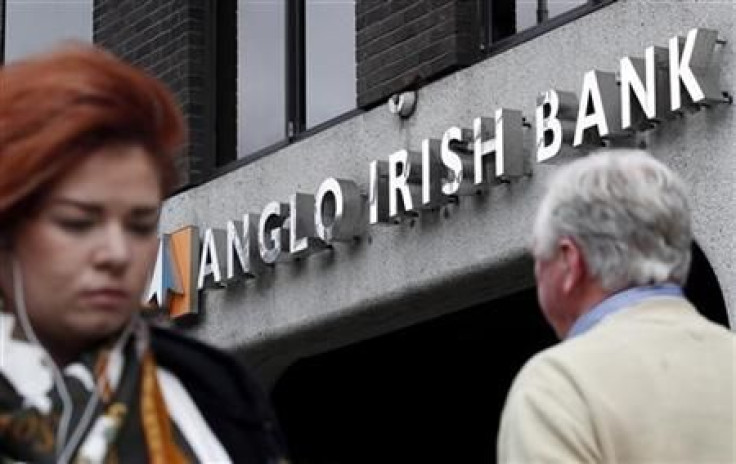Ireland’s ‘Wealthiest’ Man Declares Bankruptcy

Sean Quinn, once celebrated as the wealthiest man in Ireland, has filed for bankruptcy, according to British and Irish media.
The Belfast High Court granted Quinn a voluntary adjudication on Friday over an alleged 2.8 billion euros ($3.8 billion) debt owed to Anglo Irish Bank, which was later nationalized during Ireland's financial crisis.
According to UK media, Quinn’s bankruptcy filing is believed to be the largest by an individual in Irish or British history.
The fall of the businessman from Fermanagh in Northern Ireland has been a long time in coming. Last April, he lost control of his once vast manufacturing and insurance business empire.
At the height of his career, Quinn, now 64, was estimated to be worth about 4.7 billion euros ($6.4 billion).
Quinn and his family have been fully engaged in a contentious legal battle with Anglo Irish -- which is now called Irish Bank Resolution Corp.
By declaring bankruptcy in Northern Ireland rather than the Republic, he only has to wait one year before returning to business – whereas in Eire, he would have to wait 12 years. Moreover, those who file for bankruptcy in the Irish Republic also tend to lose their pensions.
Indeed, this move has piqued the bank, which claims that Quinn isn't a resident of Ulster.
The bank is examining the validity of this application for bankruptcy in light of Mr. Quinn's residency and extensive business interests and liabilities within the [Irish] state, it said on Friday.
The bank insists that Quinn and his family reside in County Cavan and owe the Irish state, through the bank, 2.8 billion euros.
“The mandate of IBRC is to recover as much of the debts as possible on behalf of the Irish taxpayer and IBRC will continue to pursue maximum recovery of his debt,” it said.
Meanwhile, Quinn said he took this drastic step only as a way to protect himself from the bank.
I have done absolutely everything in my power to avoid taking this drastic decision,” Quinn said in a statement in Belfast.
The vast majority of debt that Anglo maintains is owed is strenuously disputed. I cannot, however, now pay those loans which are due.
He added: Following Anglo taking control of the Quinn Group of companies, which I and a loyal team spent a lifetime building, I find myself left with no alternative.
While he concedes he owed the bank about 194 million euros ($264 million) for property loans, he disputes the other billions of euros the bank said he owes – debts related to a derivate product called Contracts for Difference. Quinn and his family have filed suit against the bank, saying the derivatives were foisted upon them illegally.
Quinn fell into financial ruin largely because his stake in Anglo Irish shares became worthless.
I am certainly not without blame. I am not in the business of pointing fingers or making excuses, said Quinn.
However, recent history has shown that I, like thousands of others in Ireland, incorrectly relied upon the persons who guided Anglo and who wrongfully sought to portray a 'blue chip' Irish banking stock.
He further blamed Anglo Irish.
“Anglo has supported and promoted an ill-conceived and highly damaging receivership program which I believe, if it continues on its current road, is destined for certain and catastrophic failure,” he stated.
“My family and I have been subjected to relentless negative media coverage over the past three years. I have been portrayed as a reckless gambler who bet on a bank. I have never sought publicity, nor have I courted the media. On the contrary I have developed a reputation for avoiding the media glare.”
He bitterly added: “Sadly this now seems to have worked very much to my disadvantage, especially when compared with the sophisticated and massively expensive publicity campaign operated for and on behalf of Anglo.”
© Copyright IBTimes 2024. All rights reserved.











